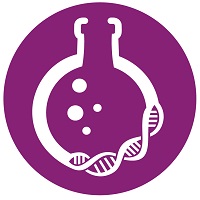Bioanalytics
Comparison of Different Platforms for Evaluating Cellular and Humoral Immunogenicity
Wednesday, October 23, 2024
9:00 AM - 9:30 AM MT
Location: 150 DEFG
.jpg)
Yanshan Dai, PhD (he/him/his)
Senior Principal Scientist
Bristol-Myers Squibb
Princeton, New Jersey
Speaker(s)
Cellular immunogenicity has been evaluated in PBMC using IFN-γ ELISPOT assay and intracellular cytokine staining with flow cytometry analysis. However, in a clinical trial, performing IFN-γ ELISPOT or flow cytometry on PBMC across laboratories can be costly, time‐consuming, and not feasible due to the lack of the site’s ability to process blood promptly. Therefore, we studied a low-cost, time, and sample-efficient approach by using whole blood cytokine secretion assay to assess cellular immunity. Specifically, cytokine secretion was assessed using a whole-blood stimulation system in combination with a multiplex Luminex assay. We will show data from Individuals vaccinated with COVID-19 to monitor antigen-specific T-cell immune response and from AAV pre-clinical monkey studies in evaluating pre-existing and post-treatment-induced cellular immunity and humoral immunity comparing different platforms: Whole Blood, ELISPOT, Luminex assays for IFN-g. For pre-existing humoral immunity against AAV, we will compare two platforms for total binding antibody assays: direct binding vs bridging assay. Although sulfo-tag-Ruthenium conjugation to recombinant AAV vectors is widely used in anti-AAV binding antibody bridging assay format, little is known about the effects of labeling on the properties of AAV vectors binding to anti-AAV antibodies. The sulfo-tag labeled AAV vectors are determined by LC-MS as the degree of labeling (DOL), the mean number of sulfo-tag per AAV vector. We will present our study on the effect of sulfo-tag conjugation to AAV vectors on antibody affinity and sensitivity in anti-AAV antibody assays.
Learning Objectives:
- Upon completion, participants will be able to describe different methods and sensitivity for assessing cellular immunogenicity such as ELISPOT and whole blood Luminex assays
- Upon completion, participants will be able to describe two platforms for assessing pre-existing total AAV-binding antibodies
- Upon completion, participants will be able to describe current challenges for bioanalytical assay development for assessing cellular and humoral immunogenicity in gene and cell therapy.

